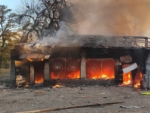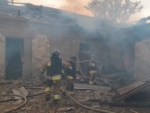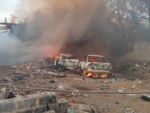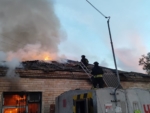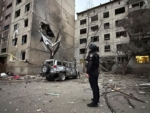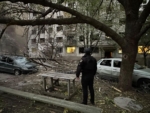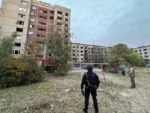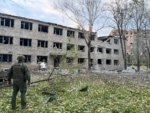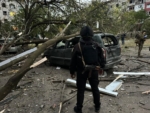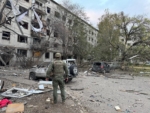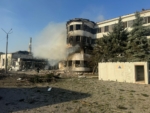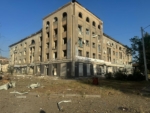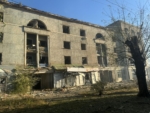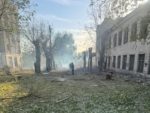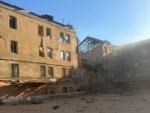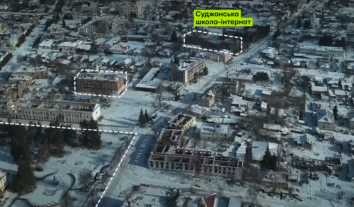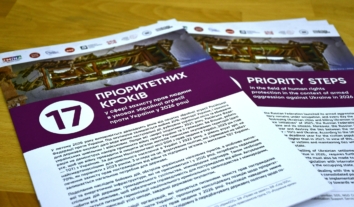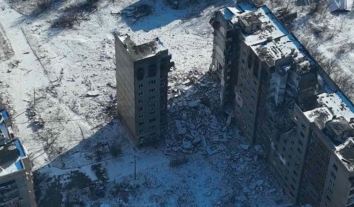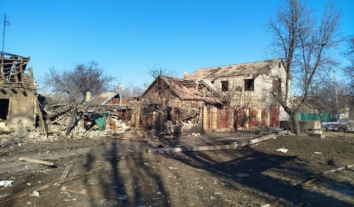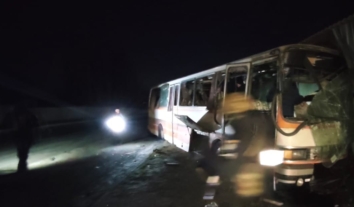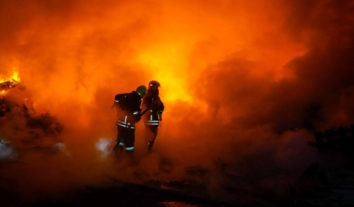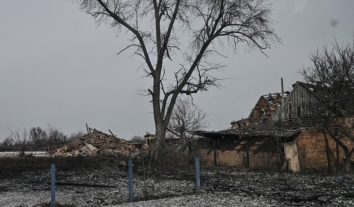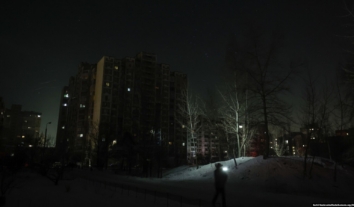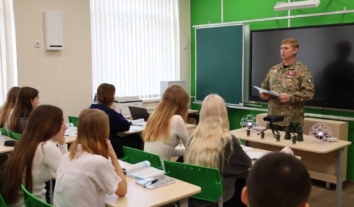Russians strike Nova Poshta delivery company office in Donetsk Oblast and kill two civilians
A Russian attack on a Nova Poshta delivery company office in Oleksiievo-Druzhkivka, Kramatorsk district, the Donetsk Oblast, killed two people and injured one on October 24, 2024.
The Donetsk Oblast Prosecutor’s Office and Vadym Filashkin, head of the Oblast Military Administration, confirmed that the attack killed a 19-year-old worker and a 21-year-old civilian. Medical personnel hospitalized a 37-year-old man with a blast injury.
On October 13, Russians killed four people as a result of their attacks in Donetsk Oblast: two in Chasiv Yar, one in Zvanivka and one in Vyshneve. The attacks also wounded three more people in the oblast during the day.
Russian attacks in Donetsk Oblast claimed two civilian lives and left ten others wounded on October 12, according to the Donetsk Oblast Prosecutor’s Office.
A Russian FPV drone struck a civilian car on the motorway between the villages of Ulakly and Dachne in Volnovakha district, killing a 19-year-old driver.
In addition, Russian forces also attacked the village of Kurakhivka in Pokrovsk district, killing an 84-year-old woman.
Russian troops then struck the town of Selydove, leaving two men and a woman injured. They also targeted the city of Siversk, where a munition struck a private house, inflicting shrapnel wounds and blast injuries on two local residents, aged 23 and 25.
Prosecutors report that Russian forces used artillery to strike populated areas.
A Russian attack on the city of Myrnohrad left a married couple, aged 50 and 55, with blast and shrapnel injuries while inside their home. They received medical assistance. The attack also wounded three other civilians, aged 46, 50, and 73, in the village of Shevchenko.
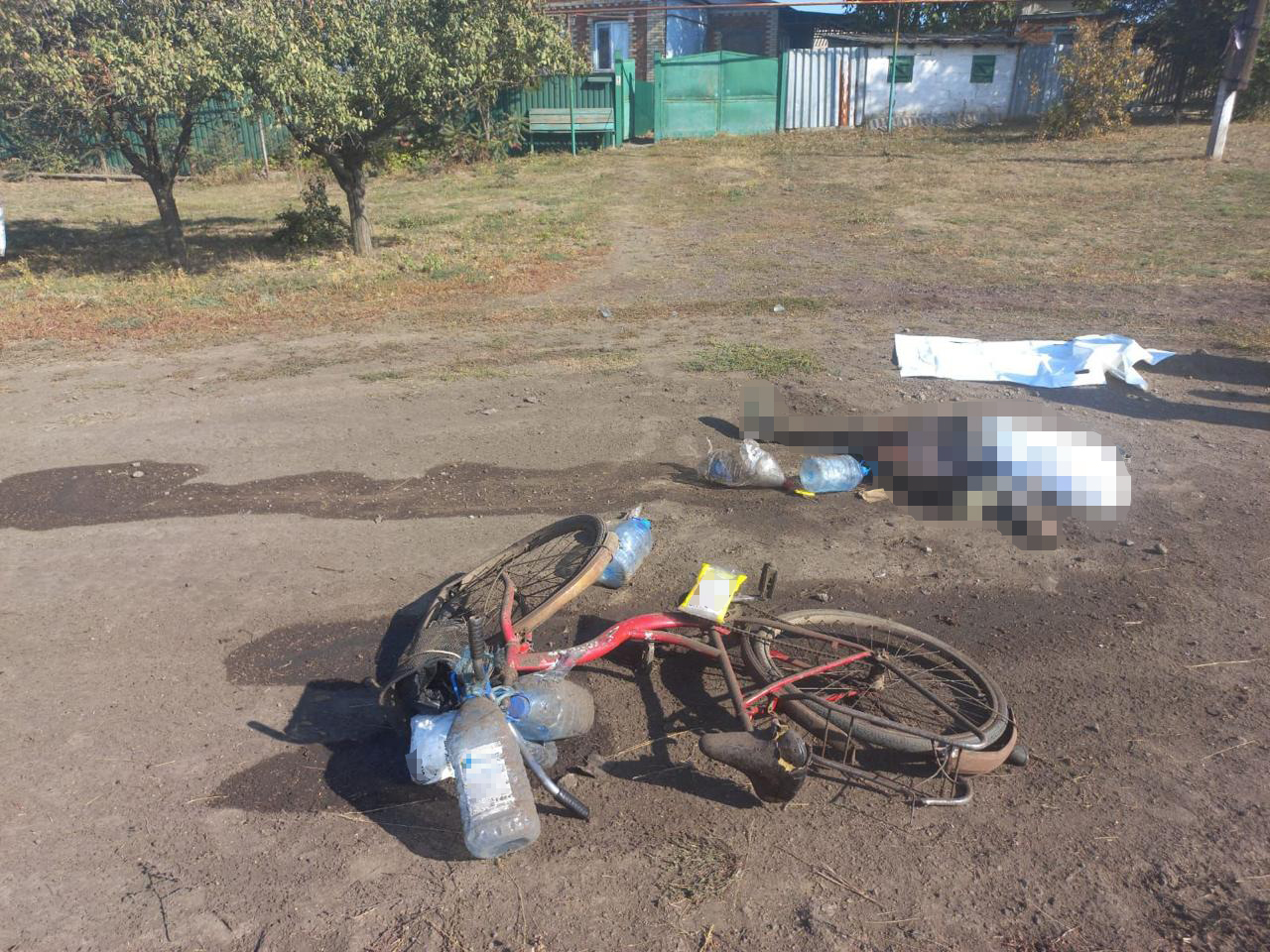 Photo credits: Donetsk Oblast Prosecutor’s Office
Photo credits: Donetsk Oblast Prosecutor’s OfficeRussian troops conducted attacks on populated areas of Bakhmut, Volnovakha, Kramatorsk, and Pokrovsk districts on October 11. Morning artillery fire also struck the city of Chasiv Yar, leaving a 64-year-old local woman with shrapnel injuries and multiple bone fractures. Medical staff transported her to the hospital in critical condition.
Artillery strikes also hit the city of Myrnohrad, injuring a 49-year-old man.
A Russian Grad multiple-launch rocket system struck the village of Velyka Novosilka, wounding a 47-year-old man.
Russians dropped three KAB-250 guided aerial bombs on the city of Kostiantynivka on the evening of 8 October, according to Filashkin, Ministry of Internal Affairs of Ukraine and Donetsk Oblast Prosecutor’s Office. The strikes killed a 77-year-old woman and injured six people.
The Interior Ministry confirmed the woman’s death, noting that Russians targeted the city with three KAB-250 aerial bombs equipped with unified gliding and correction modules. Two bombs hit apartment buildings and one struck an educational institution.
The attacks damaged at least 30 infrastructure facilities, including:
- 17 apartment buildings
- Three educational institutions
- Seven vehicles
- Three gas pipelines
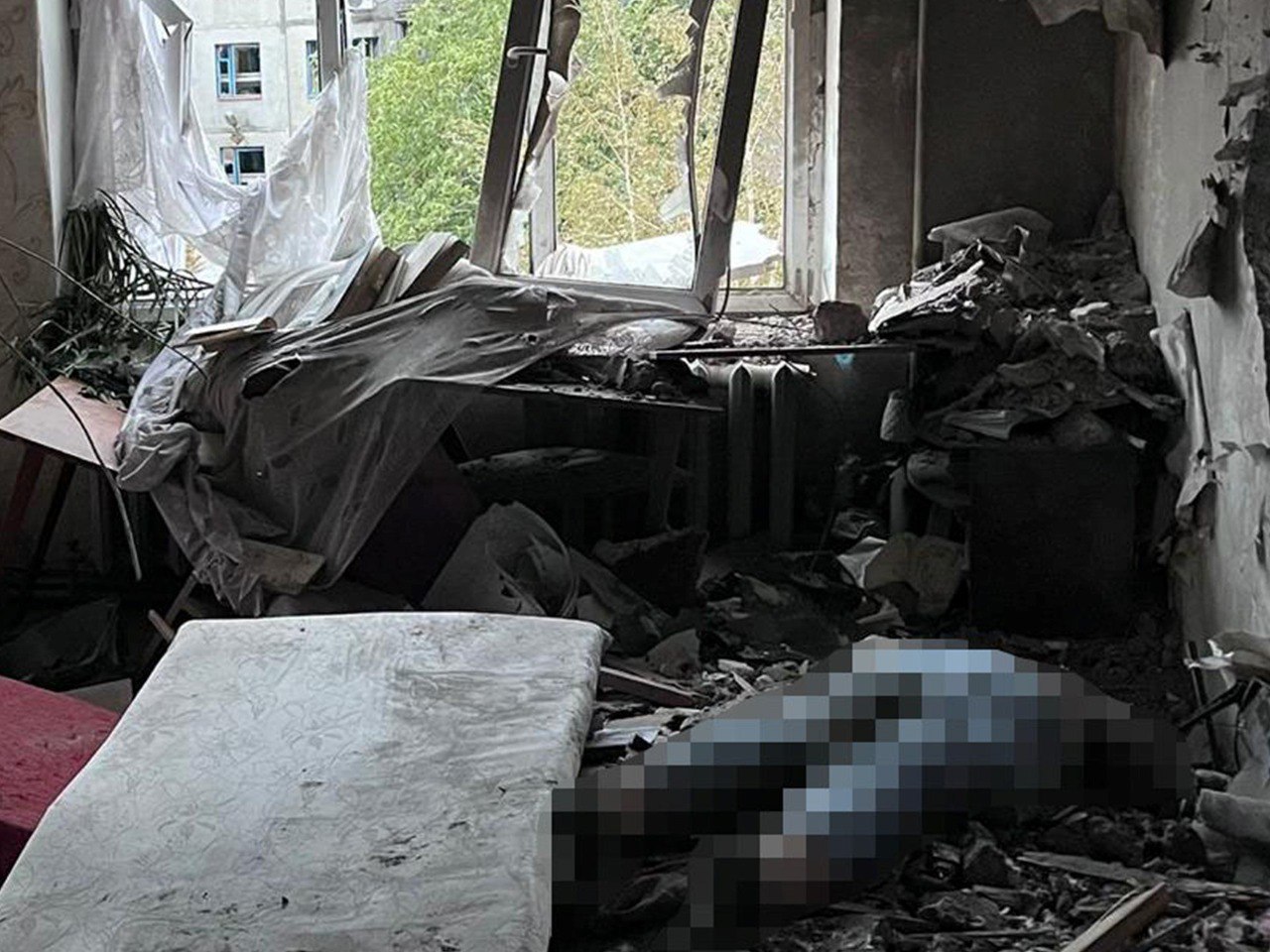 Photo credits: Donetsk Oblast Prosecutor’s Office
Photo credits: Donetsk Oblast Prosecutor’s OfficeThe Prosecutor’s Office reported that the attacks injured six civilians in their homes. Medical personnel hospitalized women aged 61, 73, and 83, and men aged 30, 45, and 73, who suffered blast injuries, craniocerebral injuries, shrapnel wounds, and fractures.
On October 6, Filashkin reported that a Russian-guided aerial bomb strike on Kostiantynivka killed a man and injured two others. Russian forces dropped three guided bombs on the city.
The attack damaged two apartment buildings, an administrative building, a shop, a coffee shop, a bank, a post office, and a power line.
Moreover, Russian attacks claimed one civilian life and injured three more in Chasiv Yar on September 26.
On September 24, Russian troops shelled the city of Pokrovsk with artillery, killing two men aged 33 and 34, according to the Donetsk Oblast Prosecutor’s Office. The attack also damaged buildings and cars in the residential area.
To provide context, Bloomberg reports that India has emerged as the second-largest supplier of critical technologies to Russia after China despite the sanctions imposed on Moscow, according to European and American officials.
Bloomberg sources indicate that India’s exports of sanctioned goods – including microchips and machinery – to Russia exceeded US$60 million in April-May 2024, nearly doubling from earlier months.
Exports surged to US$95 million by July, placing India second only to China in volume. India now supplies about one-fifth of Russia’s critical technologies for its defence industry.
The sources also note that Indian officials have largely ignored inquiries from Western diplomats regarding their assistance to Russia.
Meanwhile, Russian and Pakistani companies have established a barter trade mechanism. The Moscow Times reports that Astarta-Agrotrading will exchange chickpeas and lentils for mandarins and rice from Meskay + Femtee Trading Company.
Under the agreement, the Russian company will deliver 20,000 tons of chickpeas in exchange for 20,000 tons of rice. In a separate contract, Russia will provide 15,000 tons of chickpeas and 10,000 tons of lentils in exchange for 15,000 tons of mandarins and 10,000 tons of potatoes.
Earlier, Ukrainian President Volodymyr Zelensky presented MPs with a Victory Plan that aims to strengthen his country’s position enough to end the war with Russia. The plan also includes a Peace Formula. Both plans allow for the de-occupation and reintegration of Ukrainian territories. Ukraine has already initiated preparations for reintegrating its territories temporarily occupied by Russia, including Crimea.
 Volodymyr Zelenskyy
Volodymyr ZelenskyyAt the Third Parliamentary Summit of the Crimea Platform in Riga, Tamila Tasheva, the Presidential Representative to Crimea, revealed that Ukraine’s government and civil society are jointly developing comprehensive programs. These initiatives aim to restore infrastructure, rebuild the economy, revitalize the social sphere, and ensure rights and freedoms for all citizens.
On October 24, Germany rejected Ukraine’s potential NATO invitation, the first point in President Zelenskyy’s Victory Plan.
In an interview with ZDF, German Chancellor Olaf Scholz emphasised that NATO had already made decisions regarding Ukraine’s membership prospects at the Vilnius and Washington summits, adding that “there is currently no need for any new decisions beyond this.”
“A country at war cannot become a NATO member. Everyone knows this, and there are no disagreements on this point. In NATO, we typically link invitations quickly to membership,” he said.
President Zelenskyy maintains that implementing the Plan will compel Russia to participate in the Peace Summit and ensure the full restoration of UN Charter principles and purposes.

